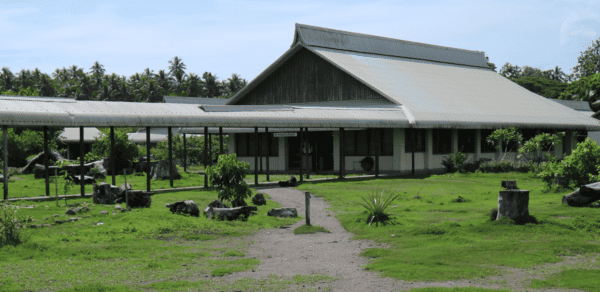Guest post in The Guardian
I have a lot of conversations (a lot…) with my 11-year-old, zombie-obsessed son that start with him saying: “Imagine there was a zombie apocalypse, and I had a nuclear blaster gun …”
But when he and I talk about zapping the zombies with his nuclear blaster, we’re not having a grown-up conversation. A grown-up conversation on a zombie apocalypse would have me reply: “Well, you don’t have a nuclear blaster gun, or any kind of gun. You have a bunch of sticks. You would have to watch in terror while the zombies ate your little sister’s brain before they turned on you.” No parenting awards for me there.
Yet, we have the nuclear blaster conversation all the time when it comes to anti-corruption. Hypothetical example: “So – there’s this systemically corrupt country and we need to fight corruption. Imagine it has a vibrant, free, non-partisan, safe, well-resourced civil society. Imagine it has a clean private sector not seeking advantage, not satisfied with the existing status quo.
“Imagine that public officials at all levels – nurses, teachers, police, bureaucrats – all get paid enough to raise their families and they get paid on time. Imagine those who have the power to change things there have the political will to do it. Now – go and fight corruption.”
Enough. Alina Rocha Menocal, lead author of a recent DfID-commissioned evidence paper on anti-corruption, has written that it’s time for a grown-up conversation on corruption, and she’s right.
For a start, we need to face up to the fact that while everyone condemns corruption, it’s not clear that we’re all talking about the same thing. The word covers a host of situations – embezzlement, bribery, even adultery and prostitution – which have only one common factor, the abuse of power. The public discourse says we are against that in all its forms. But are we?
When we understand that the police officers demanding payment to protect their fellow citizens haven’t been paid for six months, condemning corruption no longer looks so straightforward. They also have families to feed, and rent to pay. When we understand that under-the-counter payments are the only way to access scarce healthcare expertise, who can condemn those who pay up because they aren’t willing to sacrifice their loved ones to a principled stance?
If zombies existed, my feeling is that even a nuclear blaster gun would not, in fact, see them off – or, at least, not without seeing the living off too. Back here in real life, we urgently need to move beyond the common, unquestioning assumption that corruption is always the worst of all evils. This kind of thinking leads to the idea that somewhere there exists a “kills-99%-of-all-known-corruption” blaster which could wipe it out with no collateral damage – like, for instance, the descent into destitution of a corrupt police officer’s family.
It’s not just the public who think this way. Aid donors are often told by their ministers (or even prime ministers), “You need to do more about corruption in developing countries.” Yet corruption permeates every level of society, economics and politics, and is national, sub-national, transnational – so where does an external agency even begin? It’s time to stop fantasising about blasters and instead start thinking about what we might be able to do with the pile of sticks we do have.
The two sticks most often used by anti-corruption programmes are the “supply-side” stick – setting up watchdogs, civil service reform, improving legislation – and the “demand side” stick – encouraging civil society pressure groups, funding anti-corruption education. The evidence is, however, that fantastic legislation gets passed but is never implemented. Anti-corruption billboards are erected outside government buildings, yet civil servants still accept bribes. What have we been doing wrong?
First of all, the politics of corruption has been widely ignored or misunderstood. We need to think about how power – at every level – really works. For example, sometimes donors will go into countries with a list of priority anti-corruption reforms, without taking into account what governments will and won’t support. They’ll then complain that the government lacks “political will” to move on reforms. But all governments will move on some things even if they won’t move on others. The trick is finding where political will for reforms exists (even if it’s not the donor’s top priority) and then building on that.
Then we need to examine our own responsibility as donors. How ethical are our companies when they operate in countries where corruption is rife? Do we ask no questions when the proceeds of corruption come into our own financial system? Are the per diems we pay distorting activists’ incentives? Are we asking too much when we ask civil society to confront corruption – an often dangerous and thankless task – without offering enough protection.
We can see now where some of the sticks may be. We should focus on programmes and reforms that are more likely to be supported locally; make sure we’re not part of the problem; help countries fight the corruption that worries them rather than us – and then we may do a better job.
I think our childish, simplistic view of corruption has become, like a youngster’s fascination with zombies, simply a manifestation of our fears. A scary word, yet an essentially vague abstraction that speaks to more general worries about unfairness, impunity, abuse of power and waste of scarce public funds.
And while it’s easy to find examples of where we seem to be losing the fight against corruption, there are also plenty of reasons to be optimistic. For instance, in the summer of 2014 Brazilians massed to protest against how little promised World Cup money was finding its way to schools and healthcare. This tells me that decades of anti-corruption reforms are bearing fruit, because even 20 years ago popular anti-corruption protests in Brazil would have been unthinkable. Brazil now has better anti-corruption and transparency legislation; there is increasing evidence of judicial independence, removing “guaranteed” impunity; investigations of and arrests for corruption are increasing; the country has an impressively free media and an increasingly active civil society. It may not be perfect, but it’s clearly better than it was before.
So I could say to my son: “Don’t worry, zombies aren’t real – and if they were, I’d protect you anyway”, but that wouldn’t help him grow up. I need to help my son learn to manage his fears about war, disease, death, abandonment and adults who can’t be trusted to care for children. We need to move the conversation on corruption forward in the same way. Instead of leaving it at “don’t worry, we’re protecting every penny of every pound,” can we say something more nuanced about why corruption actually happens? Can we discuss sensibly the limited ability of external actors to force change? Can we think and work in a more politically savvy way and, ultimately, design more effective anti-corruption programmes?
My worry is that if we don’t, we won’t be able to improve support for anti-corruption activities because we won’t be able to do things differently enough. The evidence seems to be telling us we must now start having that different, more grown-up conversation on corruption.










